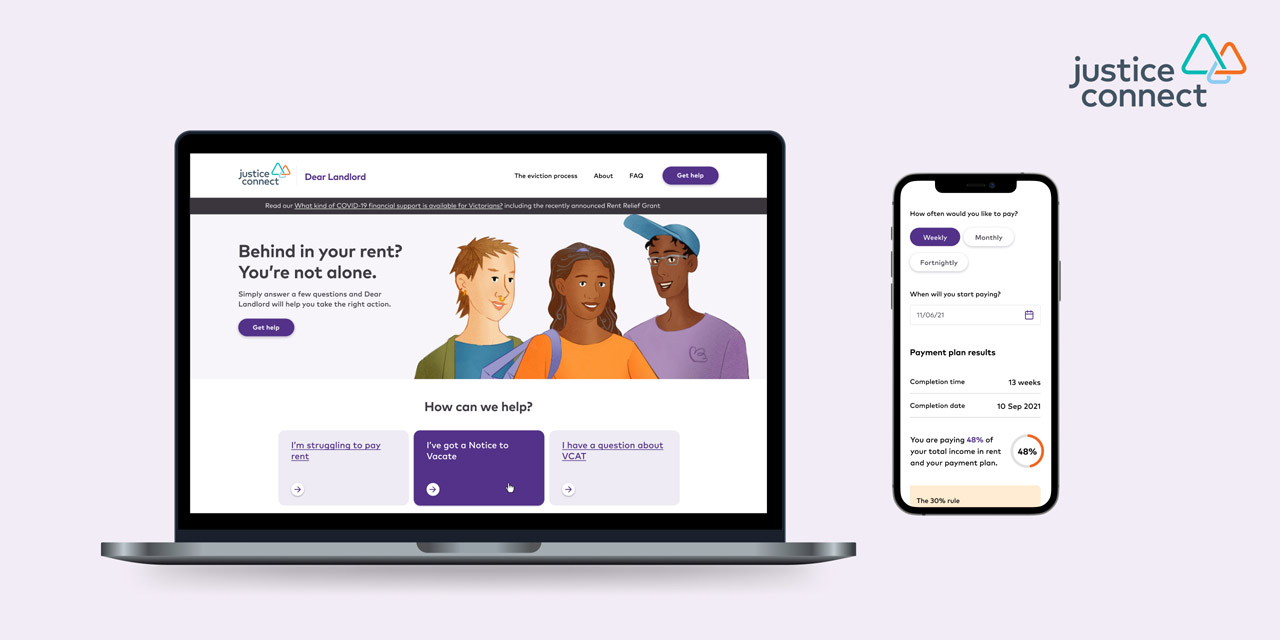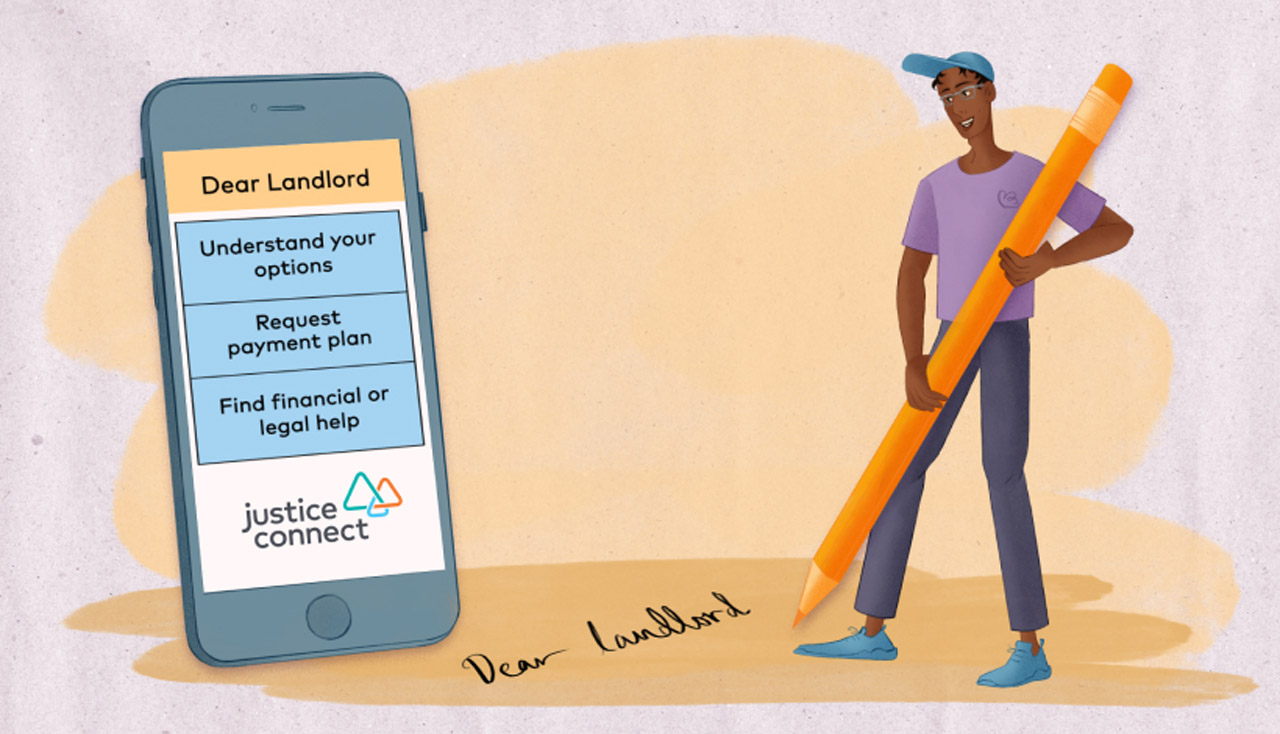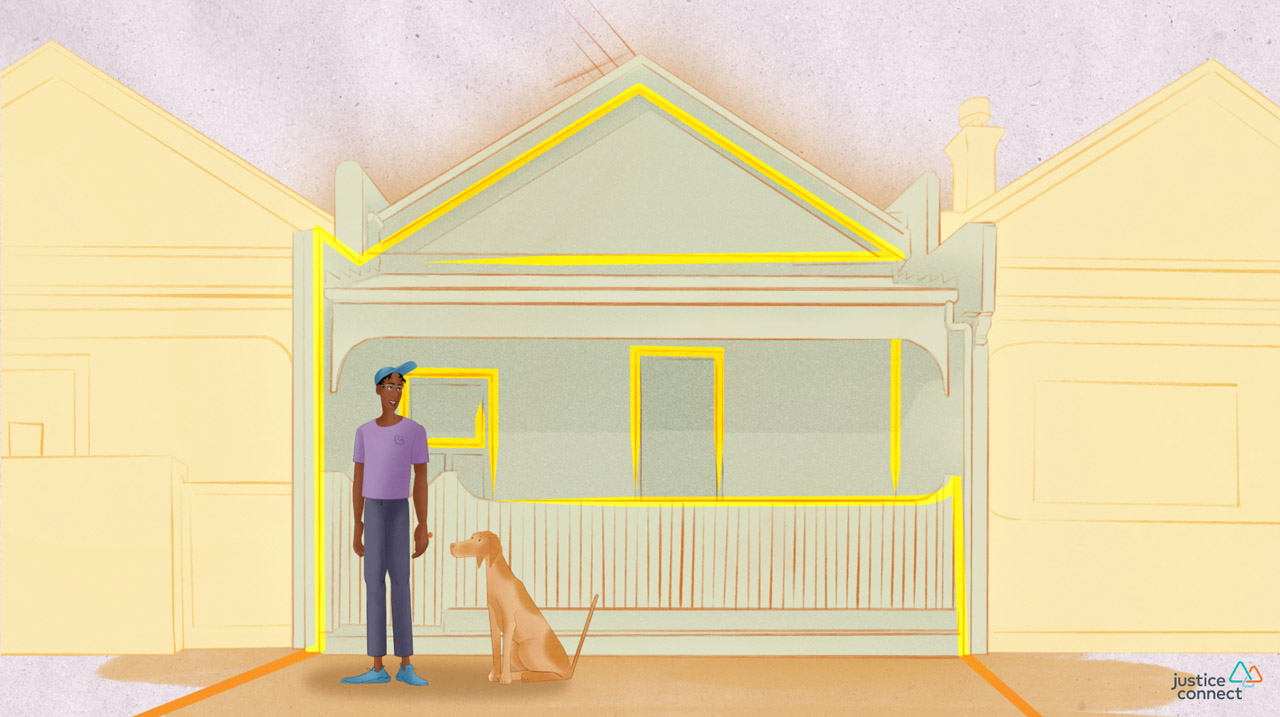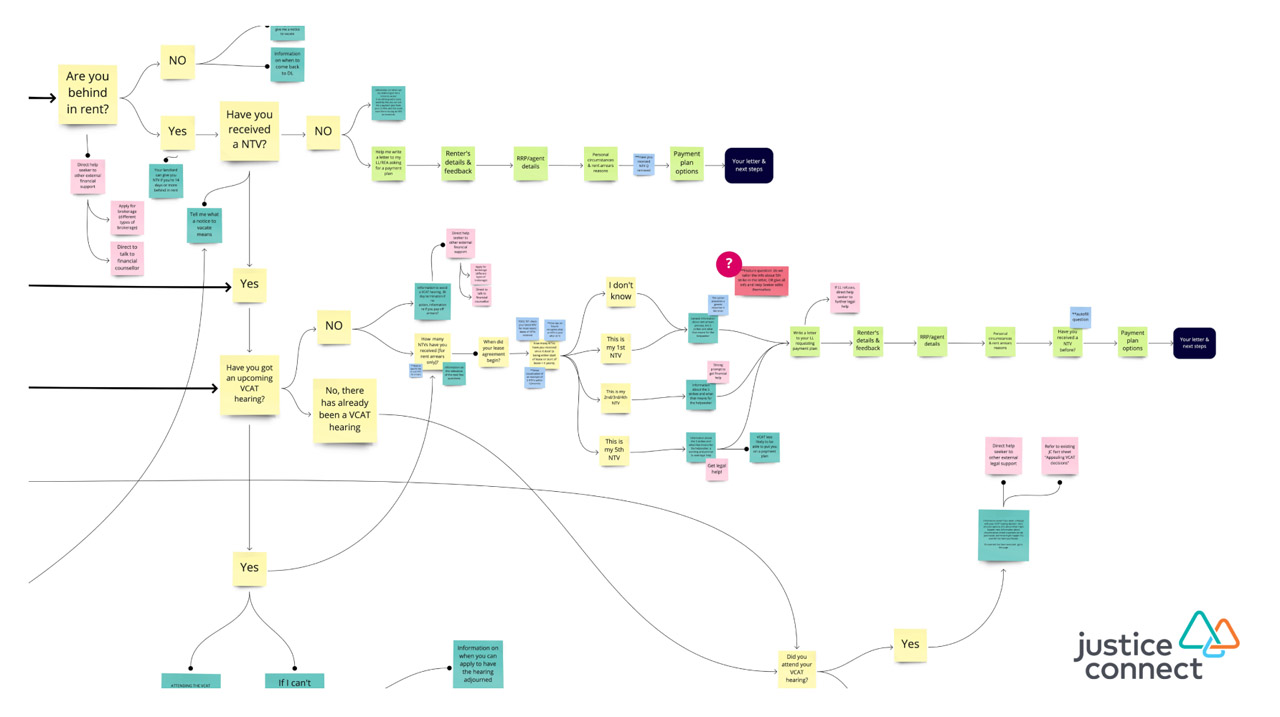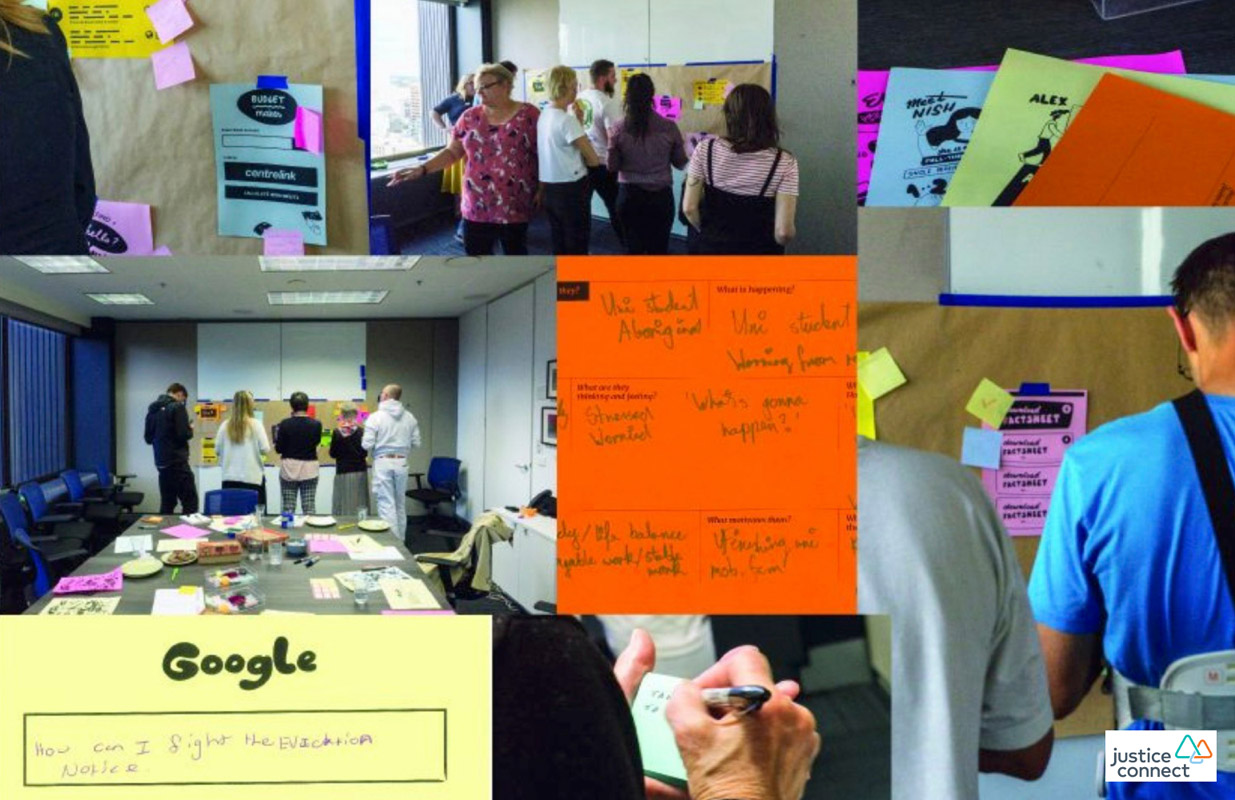As part of our human-centred design process, Justice Connect consulted with consumers to first, understand the problem, and then help design, test and develop a solution. This high-touch consultation continues to underpin our iterative design process, informing ongoing updates to Dear Landlord.
We conducted co-design workshops, 1:1 interviews, feedback surveys and user testing, enabling us to respond to increasing numbers of people falling behind in rent, the impacts of COVID-19, and the launch of Victoria’s new tenancy laws in March 2021.
We’ve integrated user feedback loops so we can constantly assess the efficacy of the tool in helping people avoid eviction. In addition to regular feedback loops, we routinely schedule 1:1 in-depth sessions to collect insight into our users’ evolving needs.
“A lot of the time I would be intimidated by big legal words, and this is exactly the information I would need to know to feel comfortable that this letter would cover everything that I needed it” - User testing participant
We created four core types of user groups, taking into consideration people’s different experiences navigating support services, confidence to act on rights, and management of other issues connected to housing insecurity. These help us focus on the mindsets and behind-scenes-drivers of behaviour, informing our design decisions and communication strategies.
Dear Landlord’s design processes allow the tool to respond to emerging needs as they arise. As part of the visual branding of the tool, a comprehensive component library allows new support flows to be designed and released quickly. This is imperative during the pandemic when we need to rapidly respond to the changing support needs of Victorian renters.
The design system behind the tool allows the team to make updates efficiently, while maintaining a consistent look and feel that leverages the trust associated with the Justice Connect brand.


